| Last visit was: 24 Apr 2024, 23:12 |
It is currently 24 Apr 2024, 23:12 |

Customized
for You
Track
Your Progress
Practice
Pays
| FROM Tuck Admissions Blog: That’s A Wrap: 2015 Global Insight Expeditions |
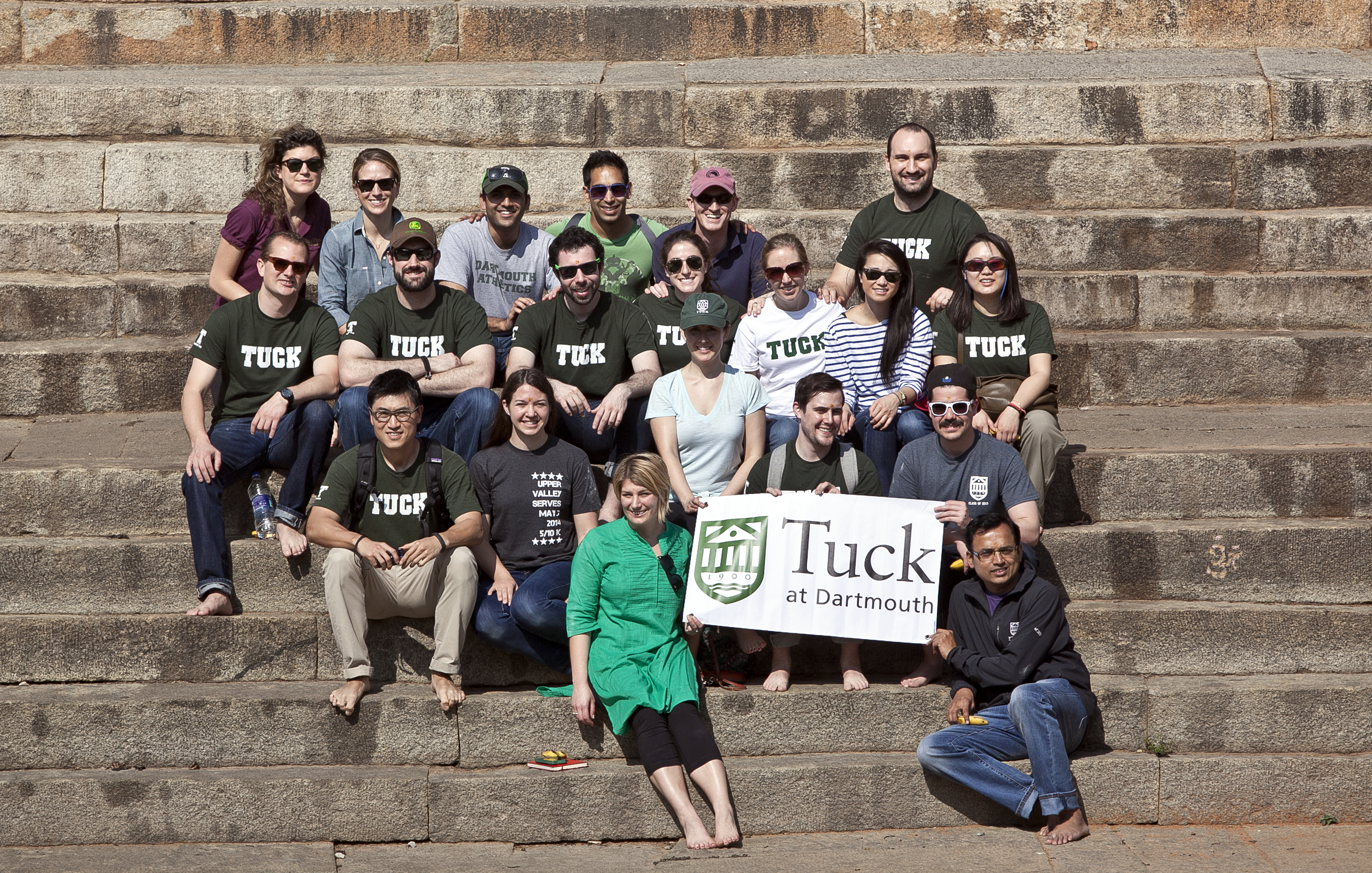 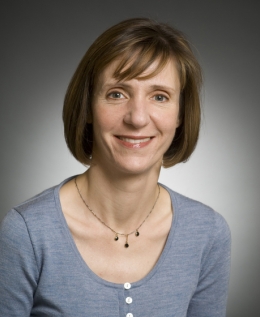 By Lisa Miller, director of Global Insight Expeditions, On-Campus Global Programs The 2015 Global Insight Expeditions (GIXs) have come to a successful conclusion! You’ll find great blog posts by some of the student participants on this site. I thought I’d write a brief post myself providing some context for the experiences that they describe. For background, GIXs are faculty-led courses that take place outside the US. They are 8 – 10 days in length and provide opportunities to interact with local businesses, nonprofits, governments, and entrepreneurs and engage in cultural activities. They're held during March break and satisfy the Global Insight Requirement. This year about 135 students participated in seven GIXs to Georgia and Armenia, Japan, India, Israel, the Netherlands, South Africa, and the UAE & Qatar. Each GIX has a theme. This year’s course titles included “The Three Indias: Doing Business across Economic and Cultural Divides”; “The UAE and Qatar: Sustaining Globalized Economies”; and “Japan Today: Through the Lens of the 2011 Tohoku Triple Disaster.” Students rated the GIXs very highly in terms of helping them to understand key aspects of the business environment and the values, beliefs, and norms of the host countries. We pick destinations based on a variety of criteria. Some of the countries visited—such as India—are large players in the global economy and on many students’ “bucket lists.” Others, such as Georgia and Armenia, were brought to our attention by Tuck community members who knew them well. All destinations, however, share some common characteristics: passionate, knowledgeable Faculty Leaders; great business and cross-cultural learning opportunities, and alums who are willing and able to help. Each day on a GIX there are two to three structured activities that illuminate the themes of the course. There is no formula for a high-value activity—they come in many different forms: • In Israel, pitch sessions from talented young entrepreneurs and dinners in the homes of local people from across the political and religious spectrum • In Qatar and the UAE, a lively, candid panel discussion with business people with years of experience in the region and a reflection session led by the professor • In Armenia, a trip to the Presidential Palace to meet with the president’s chief of staff and a trip to a seminary to meet with a bishop • In Georgia, discussions with some of the country’s leading CEOs and the opportunity to experience ancient wine-making techniques, traditional dance, and polyphonic signing • In South Africa, a trip deep into a platinum mine and soccer with kids in an economically disadvantaged community • In Japan, a meeting with the lead government-appointed investigator of the Fukushima nuclear disaster and a homemade dinner with residents of a fishing village • In India, visits to Infosys, Mahindra & Mahindra, the Dharavi slum, and a rural village outside of Bangalore • In the Netherlands, lectures by some of the leading minds in the healthcare field on topics ranging from drag pricing to euthanasia A wide variety of activities helps to ensure a more complete learning experience, a deeper appreciation of the country and its culture, and the desire to re-engage in the future. Enjoy reading about our students’ experiences in their own words, and perhaps I’ll see you at a GIX information session one day! Read about this year's Global Insight Expeditions from Tuckies themselves: Georgia and Armenia, UAE & Qatar, India, Israel, South Africa, Japan, and the Netherlands. |
| FROM Tuck Admissions Blog: My Top 5 Favorite Professors |
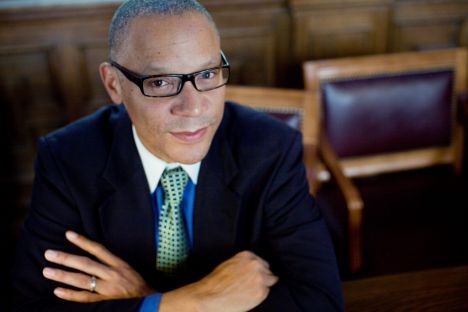 By Isaac Ipson T'15 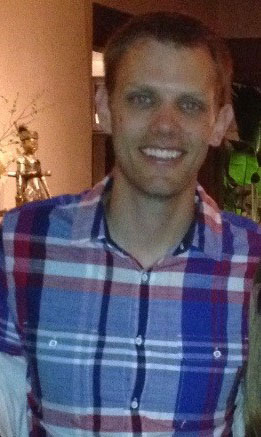 Isaac is a second-year at Tuck who is getting ready to graduate! He is loving his life in Hanover with his wife and two sons (one and three years old). As an undergrad, Isaac studied economics and took a two year break to serve a two-year mission for his church in Poland. Immediately before Tuck, he worked in Chicago for Sears Holdings. He intends to head to Dallas after graduation to work for the company with which he interned, DaVita Healthcare Partners. When I was looking into Tuck, a common bragging point for students and the admissions team was the great faculty. Admittedly, this was not high on my list of determining factors when choosing a school, in large part because it seemed very difficult to compare. After nearly two years at Tuck—and still zero at any other business school—I’m still in no position to compare, but can personally attest to the fantastic professors I’ve had while at Tuck. Regardless of the topic, the professor can make or break the class. Fortunately, I’ve had a lot of professors who have “made” a lot of classes for me. So if anyone is reading this with a decision or future applications in mind, I would definitely recommend asking students from different schools about the teaching. It has been fantastic for me here at Tuck. With that in mind, I thought I’d share my five favorite professors from Tuck (in alphabetical order) and why. 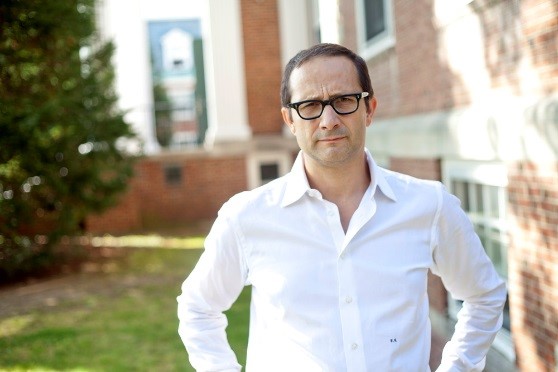 1. Giovanni Gavetti, associate professor of business administration Professor Gavetti taught my first-year core Strategy course. He is an excellent case-method instructor. His course was exactly what I imagined a business school classroom would be like—fast-paced, students all highly-engaged throwing out varying perspectives, professor orchestrating the discussion until it ultimately leads to insights. Throw in the Italian accent, and the class couldn’t have been better.  2. Joe Hall, visiting associate professor of business administration Joe, as he’s typically known around here, is a staple at Tuck. It’s pretty hard to graduate without having at least one course taught by him. He teaches half of the first-years in two separate core courses: Managerial Accounting in the fall and Operations Management in the spring (I was lucky enough to have him for both). I also took his second-year elective, Tools For Improving Operations, which builds on the first-year course. He’s a fantastic teacher: insightful, straightforward, and entertaining. I did not come to Tuck with a strong interest in operations but I am leaving fascinated by it. There is never a dull class with Joe (and if there is, he’ll at least include a cool video somewhere to break it up). 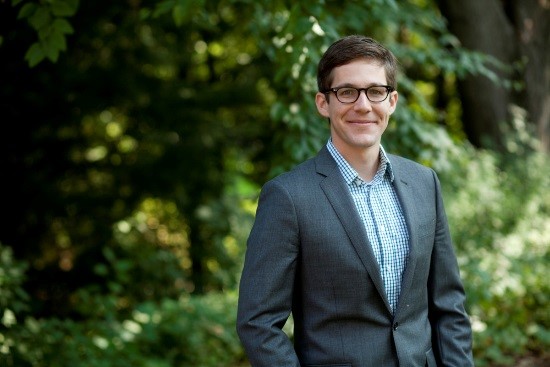 3. Daniel Feiler, assistant professor of business administration Professor Feiler is fairly new to Tuck but has quickly gained a great reputation among students. He teaches the Negotiations elective course and probably more than any other course, I can say that I loved every single session. It is very different than any other course because the first class each week is almost entirely a negotiation with a classmate(s) that we prepared the night before. In any given week I may be negotiating a movie contract with a “movie star," a settlement with the French government, or my own first job out of Tuck. The second class of the week would then be dedicated to sharing our experiences and the class’s outcomes from the day before as well as the negotiating tactics and research told by Professor Feiler. It was a fantastic course because it was so relevant (many of us were in process of negotiating offers or anticipated new jobs or homes to buy) and interactive. 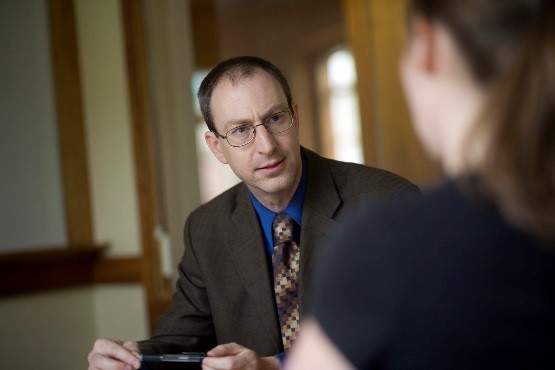 4. Rob Shumsky, professor of operations management Professor Shumsky was the very first professor that I met at Tuck. When I was a visiting prospective student, I visited the first day of his fall core Decision Sciences course. One year later I was in that same classroom myself as a Tuck student (it was kind of nice to be able to gloss over that first homework assignment). While spreadsheet modeling is not my passion (although I sure have done plenty of it), Professor Shumsky’s energy and excitement for his work is contagious. This especially came through when I took his Service Operations elective. Professor Shumsky also does a great job integrating other professors from Tuck into his teaching when there is relevant overlap.  5. Alva Taylor, associate professor of business administration Signing up for Professor Taylor’s elective (Strategy in Turbulent Environments) was one of the biggest rolls of the dice I took when signing up for courses here. Not because I had heard anything bad, but rather because I hadn’t heard anything at all from other students and didn’t have any idea what to expect. It turned out to be my favorite course of my second year. He only teaches two small sections (seemed like less than 30 students each) of the course which made for much more involved discussion. I loved the course because I felt like the frameworks that he used were very easy to experiment with and remember. He also brings a ton of energy to the class and leads by example by applying his frameworks to current events in business that we talk about. I had to choose an arbitrary number of professors to highlight, but here are a few other professors that I can’t help but mention from my time here:  Elizabeth Teisberg, professor at the Geisel School of Medicine Elizabeth Teisberg, professor at the Geisel School of Medicine I am going to work for a U.S.-based health care company, so my current elective with her (Value Based Health Care Strategy) is extremely relevant and she has a wealth of knowledge from her years of researching and writing on the subject as well as ongoing work with health systems and physicians. 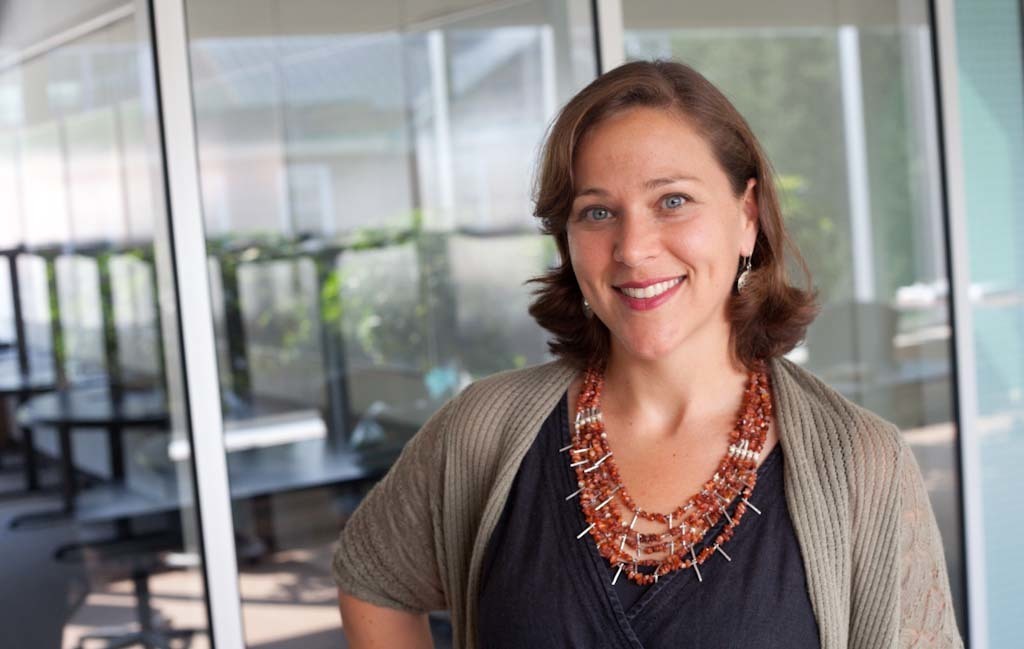 Emily Blanchard, associate professor of business administration Emily Blanchard, associate professor of business administrationAnother one of my core professors, Professor Blanchard was a great professor last year and I have seen a lot of her as a second-year student. She seems to take great advantage of listening to many of the visitors that come to speak to us at Tuck. 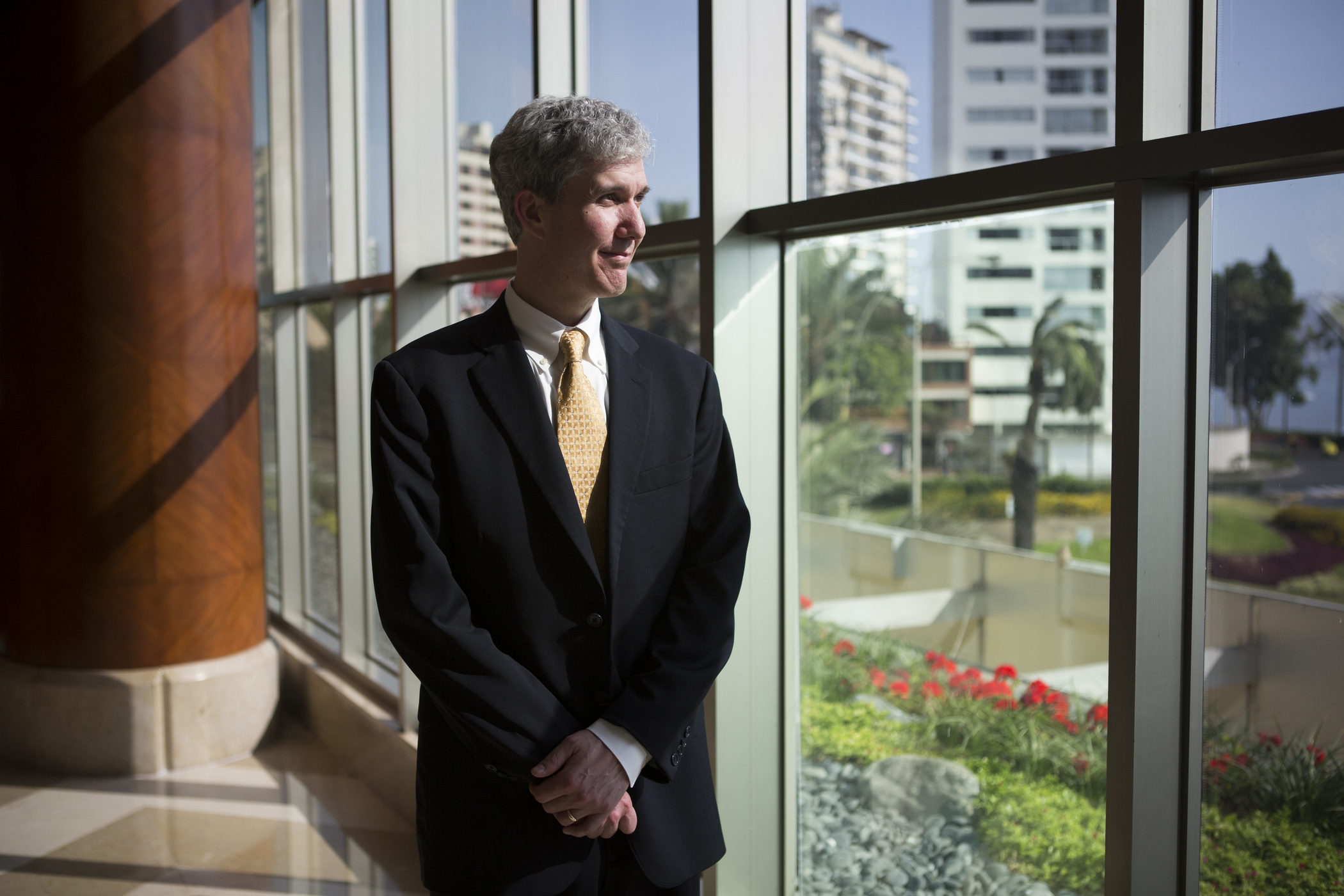 Matt Slaughter, incoming dean of Tuck, the Signal Companies' Professor of Management Matt Slaughter, incoming dean of Tuck, the Signal Companies' Professor of ManagementFor the sake of future Tuckies, hopefully he continues teaching his popular elective even as he takes over as Dean (and rumor has it that he will).  Praveen Kopalle, professor of marketing Praveen Kopalle, professor of marketingA great testament to excellent teaching is that two of the most loved professors here at Tuck teach the core Stats course (Professor Kopalle (PK), whom I’ve had, and Professor Neslin). PK set the bar high in Fall A for adding entertainment value to what could be perceived as a less interesting class. It’s been a pleasure learning from and getting to know so many great professors here at Tuck! |
| FROM Tuck Admissions Blog: Before the GMAT, Look at the Big Picture |
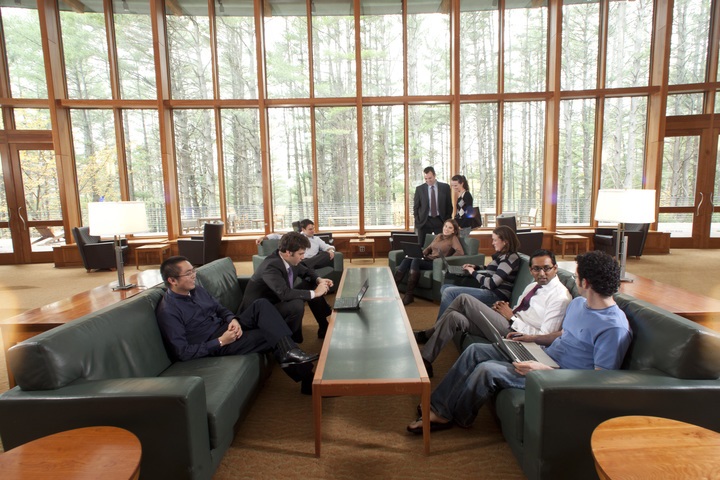 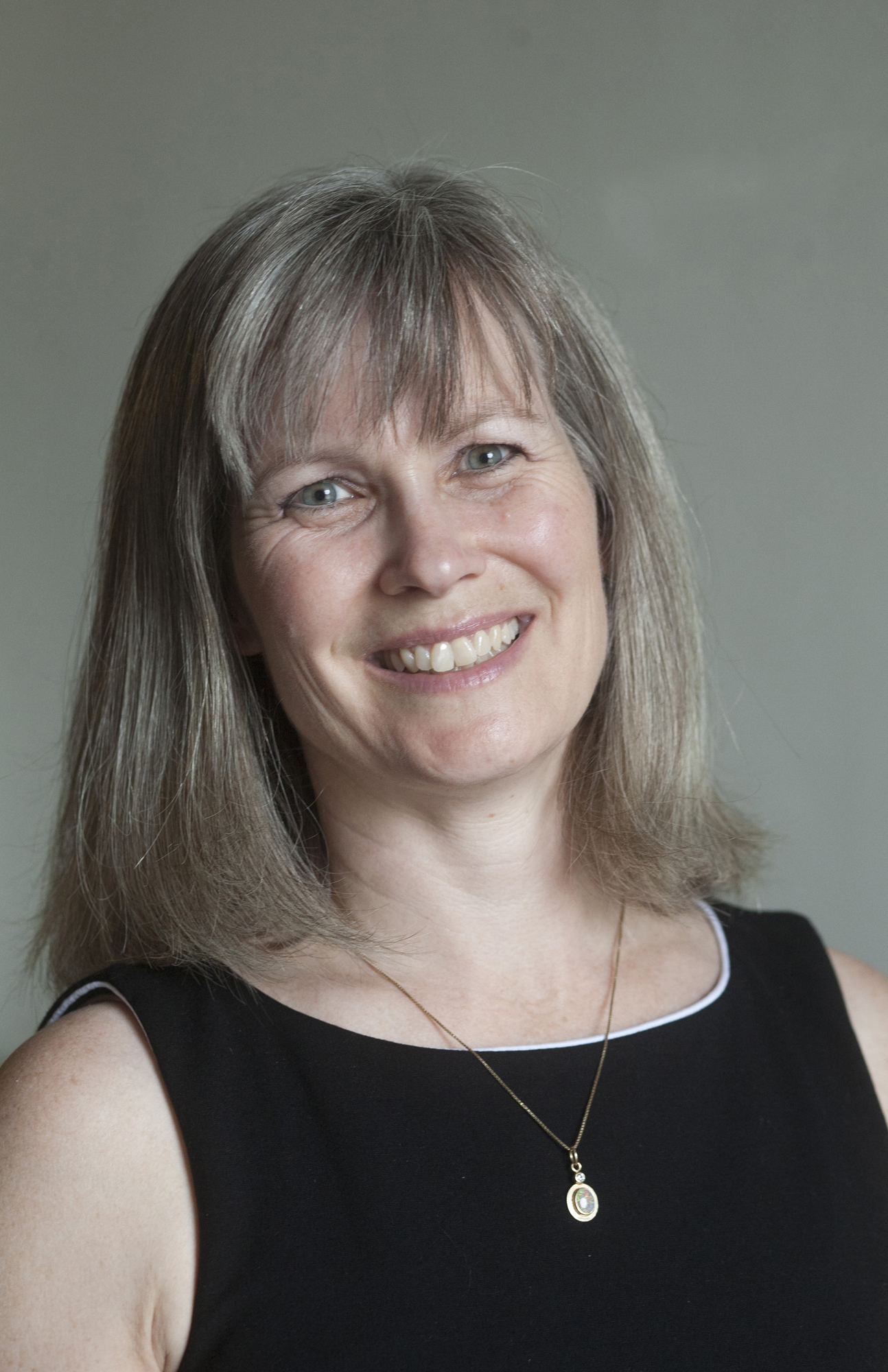 By Kristin Roth Kristin is an Associate Director of Admissions at the Tuck School of Business at Dartmouth and has been with Tuck since 2007. She serves on the admissions committee, reads applications, interviews candidates, leads recruitment of military veterans, and travels globally for Tuck. The class of 2017 isn’t even on campus yet, but we’re already in the process of recruiting the Tuck class of 2018. Those of you who are also thinking about next year, we’d like to offer some suggestions to start you on your way. There are lots of details to take care of, from taking tests to updating your resume. But before you dive into all the administrative work that goes into your MBA application, take a step back. Look at the big picture, specifically the MBA degree, your school(s) of choice, and you. First, consider the MBA. Why this is the right degree for you? What can you gain from an MBA versus another degree? Talk to people you know with an MBA about their experience and what they learned. This gives you context to think about whether your understanding of the value of an MBA matches the reality. It also helps you to form the basis of your answer to the inevitable question during the application process, “Why do you want an MBA?” Second, research the schools you’re considering. Learn what is distinctive about each school and program, as well as commonalities between them. Go back to what you wanted to get out of your MBA. How does each school fit your needs? Throw it all into an Excel spreadsheet if you want (you need to get comfortable with those anyway) and see how it fits your priorities. Third, think about you: your career path so far, the decisions you’ve made along the way, and where you want to go two years from now, ten years from now, and beyond. What are your strengths and weaknesses? What skills do you want/need to develop to reach your goals? What are you looking for in a living and learning environment? What do you need outside of your academics to allow you to put your energy into your program? The final step is to synthesize all the research you’ve done. Knowing yourself, identify what type of MBA makes sense for you and what schools offer the programs you want. Which of those schools best fit your personality but also challenge you to develop and stretch yourself? There are lots of resources to help you in your research, but the most important resource you have right now is time. Next year’s applications will be out in a few months. Until then, use your time wisely to make the application process as smooth and stress-free as possible. And good luck! |
| FROM Tuck Admissions Blog: “Tuck is hands-down the most accepting community I’ve ever been a part of” |
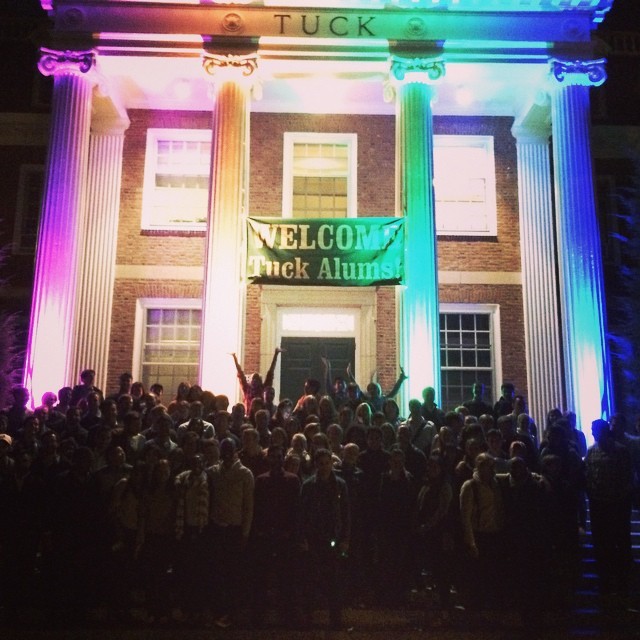 By Justin Holzwarth T'16  Justin is a first-year student and co-chair of Tuck Pride, Tuck’s LGBT and ally resource and support group. He graduated from Wesleyan University in 2008, majoring in both English and economics. After college, Justin returned home to Atlanta, where he taught ninth-grade literature for two years as a Teach For America corps member before transitioning to technology consulting at Deloitte. He’s a tech nerd, education advocate, and coffee enthusiast. In early April, my Tuck Pride co-chair Keith and I ventured out of the woods to the Windy City for the annual Reaching Out MBA (ROMBA), the national organization for LGBT MBA students, Leadership Summit. At the summit, we met with LGBT club leaders from over 20 other business schools and shared ideas, successes, and challenges we face as out or allied members of our respective MBA programs. In addition to the learning and fun, the conference helped me reflect on my experience at Tuck as an out gay man and heightened my excitement for the year ahead as Tuck Pride co-lead. To be honest, I was nervous about being out in business school. Growing up, I never regarded being gay as a big deal, but many people throughout my life thought it was. I came out in college and was out at work, but the prospect of coming out to hundreds of more people sounded exhausting. As an applicant, I had heard that Tuck was an accepting community, but in the back of my mind I was skeptical. The business world itself, despite much progress in the last few years, remains predominantly heteronormative. Would business school follow suit? I had always lived in large cities; would scenic Hanover be less inclusive? It’s difficult to overstate how misguided my skepticism was. Tuck is hands-down the most accepting community I’ve ever been part of. Every time I had come out to someone before Tuck, there had always been an ever-so-slight pause in the conversation. It wasn’t necessarily malicious—though sometimes it was—but it was there, and it accentuated my “otherness.” The pause simply doesn’t exist at Tuck; it’s absolutely amazing and indicative of Tuck’s culture of inclusion. Recently during our Admitted Students Weekend, an out admitted student mentioned that she also noticed the lack of pause. That made me proud to be a Tuckie. We’re a small group: just ten out students between the two classes, but together with hundreds of allies we’re fabulously active. Each fall, for example, we host a TuckTails during which Tuckies share coming-out stories over beers with hundreds of their classmates and light the Tuck Hall columns in rainbow colors for National Coming Out Day. This winter we hosted a well-attended “Ask Me Anything” panel where four LGBT-identified Tuckies answered the audience’s questions about our experience and how one can be a better ally on campus and in business. Finally, this spring we hosted the annual Diva Party. Our classmates dressed as their inner divas, and we raised almost $800 for the Trevor Project, an organization focused on suicide prevention for LGBT youth. Tuck was even one of the three schools that organized the national ROMBA conference in San Francisco last October. Tuck’s MBA Program Office even partially sponsored our trip to the Leadership Summit, another testament to Tuck’s respect for inclusion. The summit helped me realize that Tuck is on par with our peer schools in big cities in terms of percentage of the student body that identifies as LGBT. It was comforting to hear that some of the challenges we face in rural New Hampshire, such as the low number of out women in business compared to out men, were universal across our peer schools, even those in bustling cities. And it was exciting for Tuck to be identified as exemplary for some of our LGBT initiatives, especially around ally and alumni engagement. Keith and I are honored to be leading Tuck Pride this coming year. With the Leadership Summit behind us, we look forward to continuing to foster inclusiveness and dialogue on campus, while working toward Tuck becoming the best MBA program for LGBT students. We have a few ideas for next year percolating, specifically around tackling challenges that all top MBA programs are currently facing: strengthening our LGBT community (community is Tuck’s forte after all!), increasing representation of out women on campus, and ensuring our community is trans-friendly. Put your rhinestone shades on, folks: The future looks bright. |
| FROM Tuck Admissions Blog: Embrace the Uncertainty: My Recruiting Experience at Tuck |
 By Steve Harrington T'16  Steve was born and raised in Connecticut. After graduating from Lafayette College with a degree in electrical and computer engineering, he commissioned as an officer in the U.S. Army. He spent four years in the Army, including a nine-month deployment in Afghanistan, before starting at Tuck last August. Steve accepted an internship offer from Google to work as a product manager in Mountain View for the summer. He will be joined in California by his wife-to-be Alicia (the wedding is in June!) and his yellow lab Mason. For me, the recruiting process began before I even arrived on campus. Application essays notwithstanding, I wasn’t sure exactly what I wanted to do after my MBA. So when I saw an email about a new program launched by the Tuck Career Development Office for incoming students to travel to Silicon Valley, I thought it might be something I could benefit from. It afforded me the opportunity to learn about the tech industry as a potential career, network with Tuck alums at various technology companies, and get to know some of my new classmates before orientation. Over the course of three days, we visited a host of companies and met numerous potential contacts. It was a whirlwind, but I remember feeling great about the opportunities (and fun) ahead. The visit to Google was especially exciting for me. I had the chance to eat lunch with a Tuck alum who works as a product manager there, and we hit it off pretty well as I learned about his role. It was there that I decided tech was probably the right industry and Google might be a great fit. Key takeaways for pre-MBA: 1. If you are interested in tech, go on the Silicon Valley trek! 2. It’s never too early to get started making contacts and networking. Recruiting season started early in the fall with networking events and office hours held seemingly every day. I’ve never experienced anything like it. As I did it more and more, I began to get more comfortable during the events and to ask more questions in an effort to understand how I might fit in at different companies. Especially coming from the military, this chance to interact with business people was a learning opportunity that was incredibly valuable. What did I really want to do? Why? Where would it take me, and where could I see myself being happy? How would my family fit into this? As a whole, the recruiting process was surprisingly introspective. Over the course of deciding which companies to apply to, I ended up learning a lot about myself. Key takeaways for networking: 1. Attend as many company briefings and events as you can, even companies you don’t necessarily think are the right fit for you. 2. Don’t be put off by the formulaic feel of the networking events—so what! Just because the setting is somewhat artificial doesn’t mean you can’t make a genuine connection. 3. Indulge in free food and drinks, no one judges here. Then winter break came, and the closed-list selections for on-campus interviews were revealed. I did great! I high-fived my fiancé, bragged to my parents, tackled my brother’s dog (normally it would have been my own, but I was visiting him in Alaska at the time), and generally felt awesome. But I quickly realized how much work was in front of me to prepare for all these interviews. This is where the CDO and the Tuck network really came into play. Over the next month I spent time doing case interview practice with first- and second-year students. The CDO helped me find alumni I could reach out to at various companies. The student organizations scheduled mock interviews. The product manager I had lunch with over the summer spoke with me on the phone about how to prepare for Google. I did informational interviews with recruiters I met in the fall. Then, the first interviews started and I was doing everything at the same time. Oh yeah, there are also classes. It was a wild ride. But with the help of the resources and people at Tuck, I managed to survive recruiting season (you know, “winter”) and came out with some incredible offers. I’ve decided to join Google for the summer as a product manager in California. It still amazes me sometimes how lucky I am to have had this opportunity, and just how much I’ve learned through the process. Key takeaways for interviews: 1. Practice case interviews even if you’re not recruiting with consulting firms. 2. When approaching interviews, reach out to people you’ve met along the way for advice and support. 3. Don’t sweat the setbacks. The process is very trying and almost everyone experiences a degree of failure along the way. I’ve had multiple recruiters and alumni express to me that there will never be another time in your life when there are so many open doors and diverging paths. But the good news is that there are no wrong answers and everyone seems to find what is right for them. So I would advise anyone lucky enough to find themselves participating in the recruiting process at Tuck to embrace the butterflies, sweaty palms, and uncertainty. Just don’t forget to turn in your ManComm final. |
| FROM Tuck Admissions Blog: Tuck’s 2015 - 2016 Essay Questions |
 While the application won't go live until later this summer, here's a sneak peak of the essay questions. Each year, we refine our application to reflect what we see as the best way to get to know you and understand your story. As a result, we've made a few changes to this year's questions, so please read carefully. Remember, the essays are your opportunity to share with us who you are beyond the numbers and the resume, so reflect, take your time, and be genuine. You want to think carefully about your content as well as delivery; you need to communicate clearly and in your voice, not who you think we want you to be; and most importantly, answer the question you are asked. Essays Please respond fully but concisely to the following essay questions. There are no right or wrong answers. We encourage applicants to limit the length of their responses to 500 words for each essay. Please double-space your responses. 1. What are your short- and long-term goals? Why do you need an MBA to achieve those goals? Why are you interested in Tuck specifically? 2. Tell us about your most meaningful leadership experience and what role you played. How will that experience contribute to the learning environment at Tuck? 3. (Optional) Please provide any additional insight or information that you have not addressed elsewhere that may be helpful in reviewing your application (e.g., unusual choice of evaluators, weaknesses in academic performance, unexplained job gaps or changes, etc.). Complete this question only if you feel your candidacy is not fully represented by this application. 4. (To be completed by all reapplicants) How have you strengthened your candidacy since you last applied? Please reflect on how you have grown personally and professionally. You can find Tuck's 2015 - 2016 application and interview deadlines here. |
| FROM Tuck Admissions Blog: ‘A Dream Project’: Tuckies Evaluate Market for New Product |
 By Nicole Daniele T’16 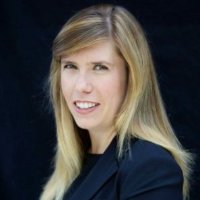 Nicole grew up in Edison, New Jersey and graduated from the University of Pennsylvania with degrees in international relations and Italian. Prior to Tuck, she worked in wealth management in Philadelphia and New York. What brings together a former MLS soccer player, a Canadian consultant, an Italian amateur pilot, a Thai entrepreneur, and an American financier? (If you guessed “fall study group”—you wouldn’t be totally wrong—but more on that later.) Tuck’sFirst-Year Project (FYP), in its 14-year existence, gives first-year students the opportunity to apply many of the lessons learned in the core curriculum to a real world business challenge in advance of summer internships. FYP clients range from Fortune 500 companies; to local Upper Valley businesses seeking Tuckies to help answer business questions; to student startups with a novel idea that are creating business plans and assessing the market for their product. Projects are placed on specific tracks based on business type—either “consulting” for more traditional and established businesses or “entrepreneurship” for some of the earlier stage ventures. Student teams are guided throughout the FYP experience by a Tuck faculty advisor who ensures the team is adhering to an agreed-upon project plan. Like study groups, FYP student teams incorporate a diverse mixture of skill sets, professional experiences, and cultural backgrounds. Unlike study groups, FYP teams are self-assembled (although I have united with a former fall study groupie on my team. All of that storming was not for naught!) Our FYP client, Merum Wine, is a startup run by Jack O’Toole, T’14, and Joe BelBruno, a Dartmouth chemistry professor. Jack and Joe have developed a novel polymer that removes certain undesirable elements from commonly-produced wines. Our task was to evaluate the market for their product. Because it is such an early-stage venture, we are one of the projects uniquely situated between the “consulting” and “entrepreneurship” tracks. For a group of novice oenophiles (three of us are Tuck Wine Society co-chairs, so we are a Cabernet Cabal of sorts), gaining a better understanding of wine production and learning the complexities of the U.S. and international wine markets is a dream project. Through the beauty of the Tuck network, we had the opportunity to chat with numerous niche wineries based in Napa, the North Fork, and Italy, and also to speak with larger, mass-scale producers before informing Jack and Joe of our final recommendations. “Our team became totally engaged in Merum, both due to excitement over the product prospects and a good relationship with the client. We met with Jack and Joe weekly, for updates, feedback and good conversation. We will definitely be in touch with Merum beyond the FYP timeframe,” says our project manager and fellow T’16, Danielle Garver. Although our group was self-formed, the FYP program’s mandate that teams be diversified in terms of home country and former career experience positioned us well to consider the project’s demands from strategic, marketing, and operational viewpoints. Thanks to many of our core professors, our understanding of key concepts from those Fall A and B classes has strengthened immensely. (Most of them were unsurprisingly willing to help when we mentioned our project strives to improve wines of even the lowest quality.) And our partnership with each other, Jack, Joe, and Joaquin Villarreal T’08, executive director of the Entrepreneurship Initiative at Tuck, could not have been more positive. As initially predicted, we’ve found strong industry interest in Jack and Joe’s product. Delivering a well thought-out final presentation in the last week (and a celebratory dinner at Worthy Burger, alas, with beer instead of wine!) was the capstone of the experience, even if we sadly were not able to fit in a trip to Napa for ‘in-person primary research.’ The Cabernet Cabal heads off to our respective summer internships—galvanized to continue learning outside the classroom, and with a newfound love of the grape. |
| FROM Tuck Admissions Blog: Advice from AdCom: Excellent Essays |
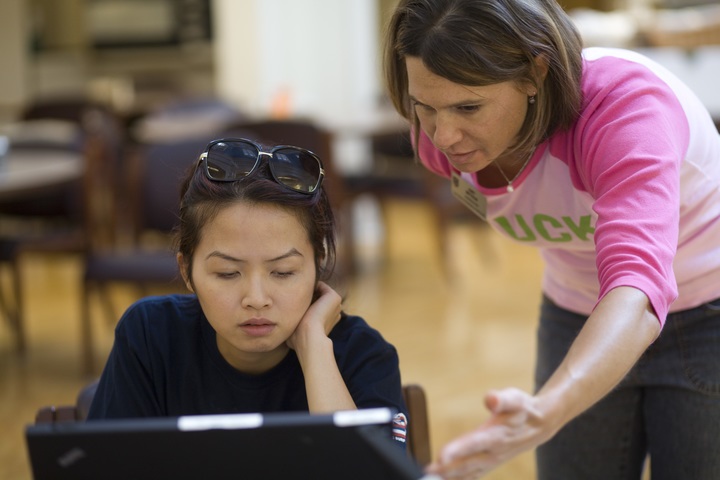 Last week on Tuck 360, we shared the essay questions required from those applying to Tuck during the 2015 - 2016 application cycle. Essays are often one of the most challenging aspects of any MBA application. Like many MBA candidates, you may find yourself with little time to spend on introspection. The MBA application process is an opportunity to reflect on your experiences, your plans for the future and what motivates you. As you begin to write your MBA essays, keep the following tips in mind: 1) Be authentic. Don’t write your essay based on what you think the admissions committee wants to hear. Instead, approach your essays with your individual accomplishments, experiences and goals in mind. 2) Answer the question being asked. This may seem obvious, but you might be surprised to know that applicants sometimes get so caught up in the story they want to tell that they lose sight of question being presented. 3) Stay as close to the recommended word limit of 500 words as possible. In our experience, we see that applicants who adhere to the suggested limit stay on topic. While we don’t count the words in every essay we will notice when you meander and ramble. 4) Proofread, review, repeat. Again, this may seem obvious, but it is easy to overlook some pretty big mistakes (referring to another school for example). Have someone you trust read your essays as well. It also helps if you read your essay out loud (and may be a great stress reducer from the comic relief of talking to yourself!). Finally, if you're considering writing your essays as a haiku, or just want some more essay insight, check out this post from Senior Associate Director of Admissions Amy Mitson: Creating Memorable Essays...and Memorable in a Good Way. |


| FROM Tuck Admissions Blog: Halfway There: 4 Takeaways from My First Year at Tuck |
 By Kiley Winsnes T'16 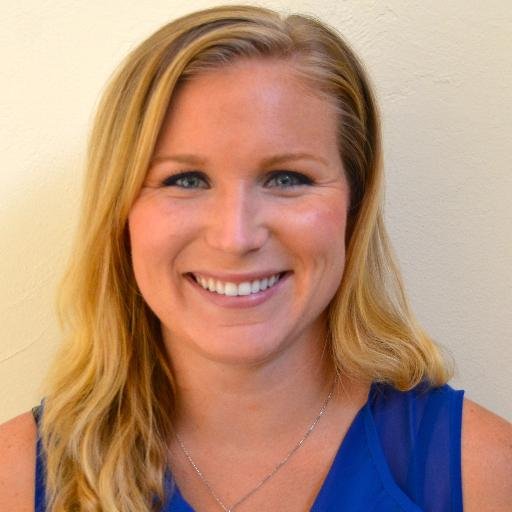 Kiley is a first-year student at Tuck. Before arriving in Hanover, she was living in stunning San Francisco and working for an integration software company. Originally from Chicago, Kiley spent her formative years in Seattle before chasing the California sunshine for her undergraduate degree in economics and religious studies. After Tuck, she hopes to get a job that combines two of her passions: fitness and technology. Outside of the classroom, Kiley enjoys running, road biking, writing, and the beverages of her two home cities: coffee and wine. Kiley can be contacted at kiley.j.winsnes.tu16@tuck.dartmouth.edu. Follow her on Twitter at @kileywins. That’s a wrap, folks. Okay, fine, it’s … half a wrap. But it is official: I’m done with my first year of Tuck. I know saying things like “I can’t believe it!” or “The time really flew!” are about as cliché as it gets, but seriously, people, this year was a Boeing Dreamliner and I am sitting here awe-struck. It’s almost as cliché to do some sort of look back, to reflect on the “lessons learned” from this year, but as I’ve already made pretty clear: clichés are kind of my jam right now. So here we go, a few takeaways from year one of my MBA. 1. The real challenges weren’t academic. The hardest part of this year, by far, was the time outside of the classroom. Leaving the life I’d built in San Francisco, being 3,000 miles away from friends and family. Trying to balance my own preferences with the perceived social norms of Tuck life. Figuring out it’s not the end of the world not to go to that party. Realizing it’s also not the end of the world not to be best friends with everyone. Tuck is about as easy as a moss-covered rolling log when it comes to finding a balance, but attempting to do so is a lesson in itself, one I’m sure I’ll continue to struggle with through second year, but also one I think will be defining in my overall MBA experience. 2. The true learning wasn’t academic, either. The topic I learned about most this year? Nope, not Excel (seriously good guess, though. I’ll put that at #2). #1 for me—and I’d venture to guess for just about every one of my classmates—was myself. The intensity of an immersive program like Tuck, paired with the small size and strong culture, makes for an incredibly self-reflective experience. Just getting through the year requires a level of self-awareness and thought that’s easy to avoid in the “real world.” Questions we mostly don’t have to (or choose not to) face as adults are constant: What are my priorities? Am I spending my time in a way that reflects those priorities? What kind of people do I like to surround myself with? What do I hope to do immediately after school? What do I hope to do 10 years from now? What attracts me to that career path? Is that dream in line with the priorities I’ve outlined? That level of mental dialogue is exhausting, and can make the whole experience feel a bit heavy, but that kind of self-learning is also the greatest gift we’ll get from this time. Making the effort to remind myself how unique it is, and embracing rather than avoiding it, is, in my humble opinion, the hardest lesson Tuck will teach me. 3. I was more prepared than I expected. Coming to Tuck, I basically imagined I would be ten years younger than everyone (Yes, I know the average age of my classmates. No, this did not deter my irrational paranoia, thank you very much.); that I would be completely lost every time I stepped into a classroom; that I would feel incredibly intimidated by my classmates’ resumes; and would basically just feel like I’d somehow snuck my way into Tuck. The truth? Academically, I was just fine. In fact, not to toot my own horn (weird, weird saying, by the way), but I was more than just fine. I felt comfortable in all my classes and even felt quite familiar with some of the topics we covered. I was pleasantly surprised by the strength of my undergrad program (props, Santa Clara) and its business curriculum. That being said, there were definitely times when I was completely overwhelmed by an assignment, and relied heavily (okay, completely) on my study group. And there were definitely times (read: all the time) when I felt intimidated by my classmates’ resumes. But hey, they’re just that impressive. And trust me, it’s much better than going to school with people whose backgrounds don’t blow your socks off (I’m full of fun axioms today!). 4. Choosing the right length of program is important. This is something I’ve been thinking about for the past couple of months, a question that really surprised me when it arose: Is a second year really necessary? Looking back on my admissions process, I didn’t even consider one-year programs. In all honesty, I kind of considered them … sub-par. I’ve always thought of the MBA as a two-year degree, and doing it in one year seemed like a cop-out. Not to mention, at the time, a huge factor in my decision was getting out of the working world for a while, and two years sounded approximately 200x better than one year (that’s MBA math, folks). But as I approached the end of year one at Tuck, I couldn’t help but wonder: do I need another year? Honestly, I don’t know if I have an answer yet. As classes were wrapping up, I thought it was a pretty strong “no”. Now that I’ve been away from school for a few weeks and am back in the working world, I’m closer to “yes." What I do know for sure: it’s an important, and personal, factor in the MBA decision, worth serious consideration. There are so many more lessons I could probably think of, but I’m kind of tired and you’re probably really tired (of reading, because this entry got out of hand FAST). Maybe I’ll regale you later on with a second entry (I know, almost too much anticipation to handle, right?!). 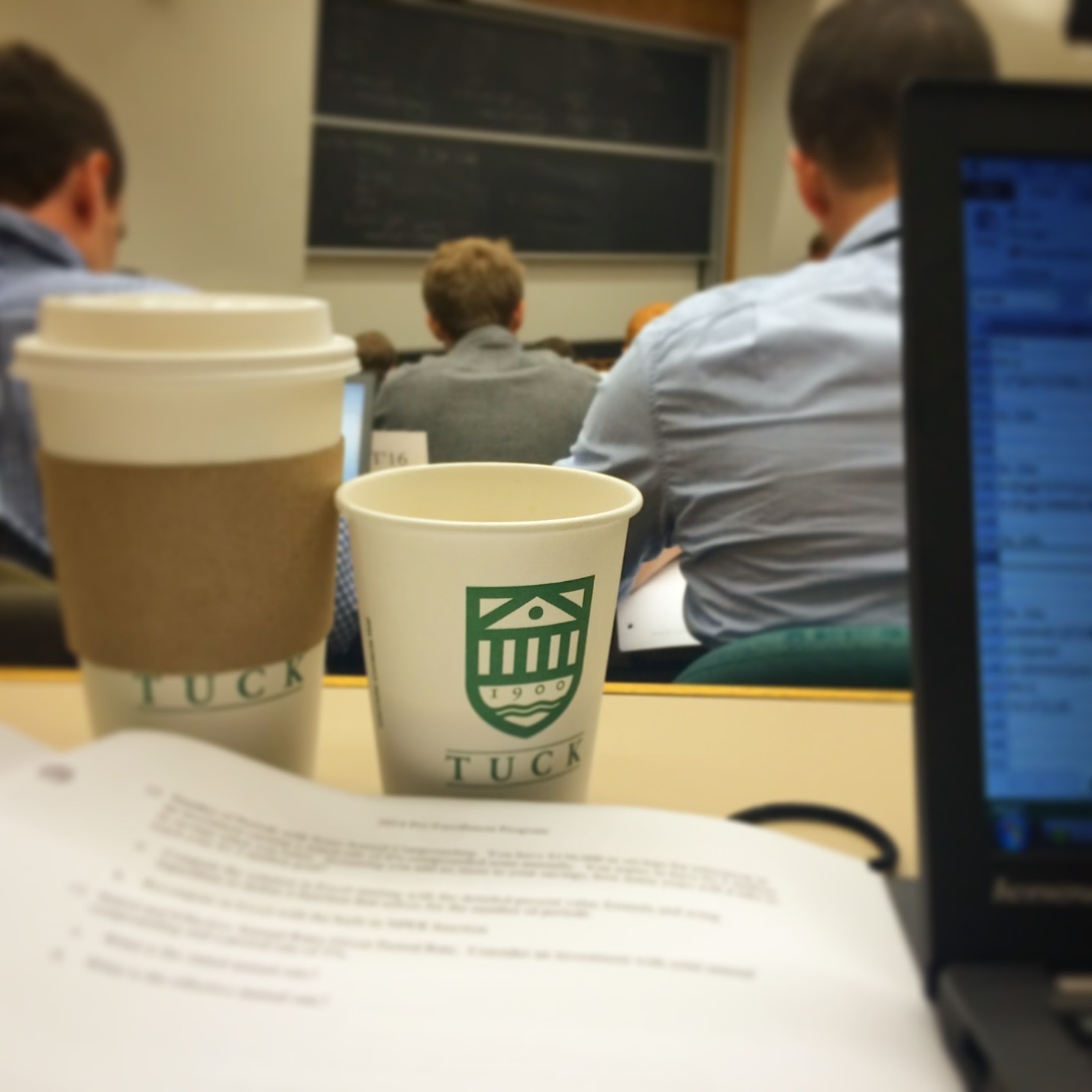 My first photo from Tuck: Day 1 of Math Camp! 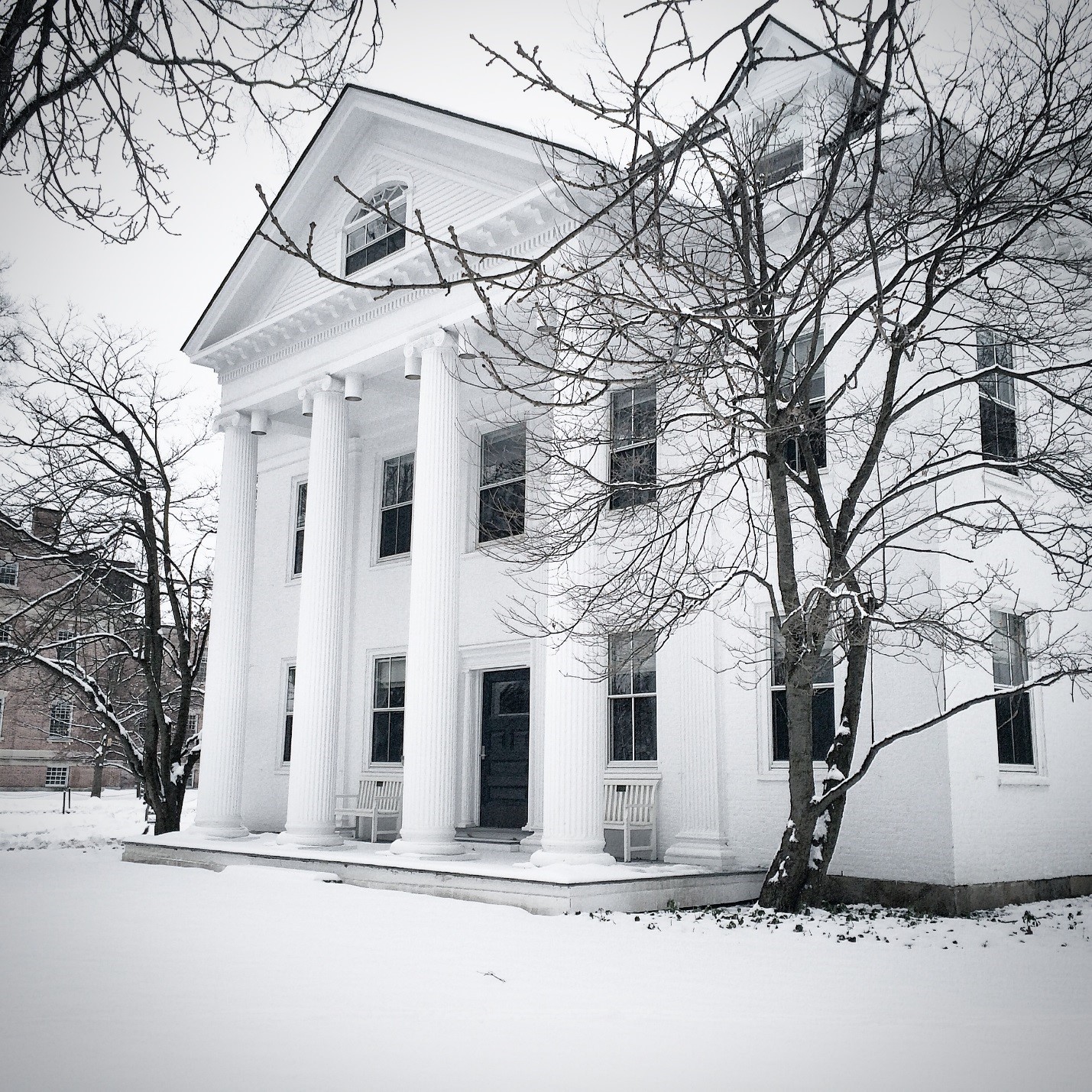 Winter was ... cold.  Spring Break in Israel! Here, a look over the city of Jerusalem.  Summer meant weekend trips to gorgeous towns nearby. Here, Burlington, Vermont. |
| FROM Tuck Admissions Blog: Considering b-school? Advice for Recent Grads |
 It's already been a week since Dartmouth held a beautiful commencement ceremony honoring 1,093 undergraduates. First, congratulations to Dartmouth's Class of 2015 and all other recent graduates! You definitely deserve a moment to reflect, prepare, and celebrate. However, when the final pieces of confetti have been swept up and you have a moment to consider what the next five, or even 10 years of your life might look like, we hope you'll consider going back to school in pursuit of an MBA. And if you do see business school in your future, we certainly hope you'll consider Tuck! Below, Tuck's Director of Admissions Dawna Clarke offers advice to current undergrads and recent grads who are considering the eventual pursuit of an MBA. Tuck, as well as other top-tier MBA programs, typically encourage at least 2 years of full-time work experience prior to beginning their program. On average, Tuck students matriculate with 5 years under their belt. By heeding Dawna's advice in the present, you'll be incredibly well positioned for the future! Questions? Let us know! |
| FROM Tuck Admissions Blog: New SafeRides App Helps Tuckies Get Home Safely |
 By Neil Kulkarni T’16 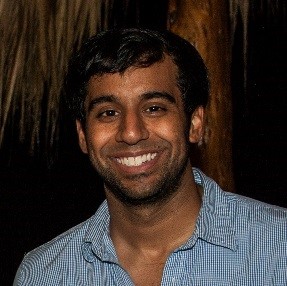 Neil is a first-year student at Tuck who spent the past four years working in strategy consulting at Deloitte advising clients in the CPG and health care industries. Neil is currently the technology representative on the Student Board and is also actively involved in tripod hockey and the Business and Society Conference. Neil grew up in Atlanta and graduated from Emory University. There are so many things I love about living in the Upper Valley: nature and wilderness, hiking, skiing, hockey, bears, deer, wild turkeys, ice fishing, getting to REALLY know my classmates. One of the very few things that I don’t love, however, is that there really aren’t any cabs (or Ubers) to get my fellow Tuckies and me home after a night at Murphy’s, Tuck’s unofficial pub. Luckily, I teamed up with Suraj Venkitachalam (SUV) T’15 and Tuck IT to develop a system that makes sure my friends and I get home safely and in one piece: SafeRides. Four nights per week (Wednesday – Saturday), two Tuckies or Tuck Partners (TPs) volunteer to sober drive from 10 p.m. to 2 a.m. Better than a taxi or Uber, SafeRides also makes sure your car gets home with you, so you can still get to class on time the next morning. Just another example of the wonderful Tuck community in action! How does SafeRides work? Students/TPs sign up on a spreadsheet to SafeRide for one or two days throughout the year—a part of the “pay-it-forward” culture that exists at Tuck. On the day they are driving, the students send out an email (usually pretty entertaining) to the Tuck community with their phone number (or sometimes Snapchat, Instagram, or Tinder accounts). Throughout the night, people call them to ask for rides. The two drivers come pick you up in one car, and one drives your car back home. Pretty simple, right? Early in the year, we noticed a number of issues with the way the “system” operated. Sometimes drivers would get requests from three-to-four people and have to maintain a mental queue. Sometimes the drivers were in separate cars (driving someone back) and would get calls from different people, resulting in different responses on order and priority. Sometimes they couldn’t tell exactly where someone was located 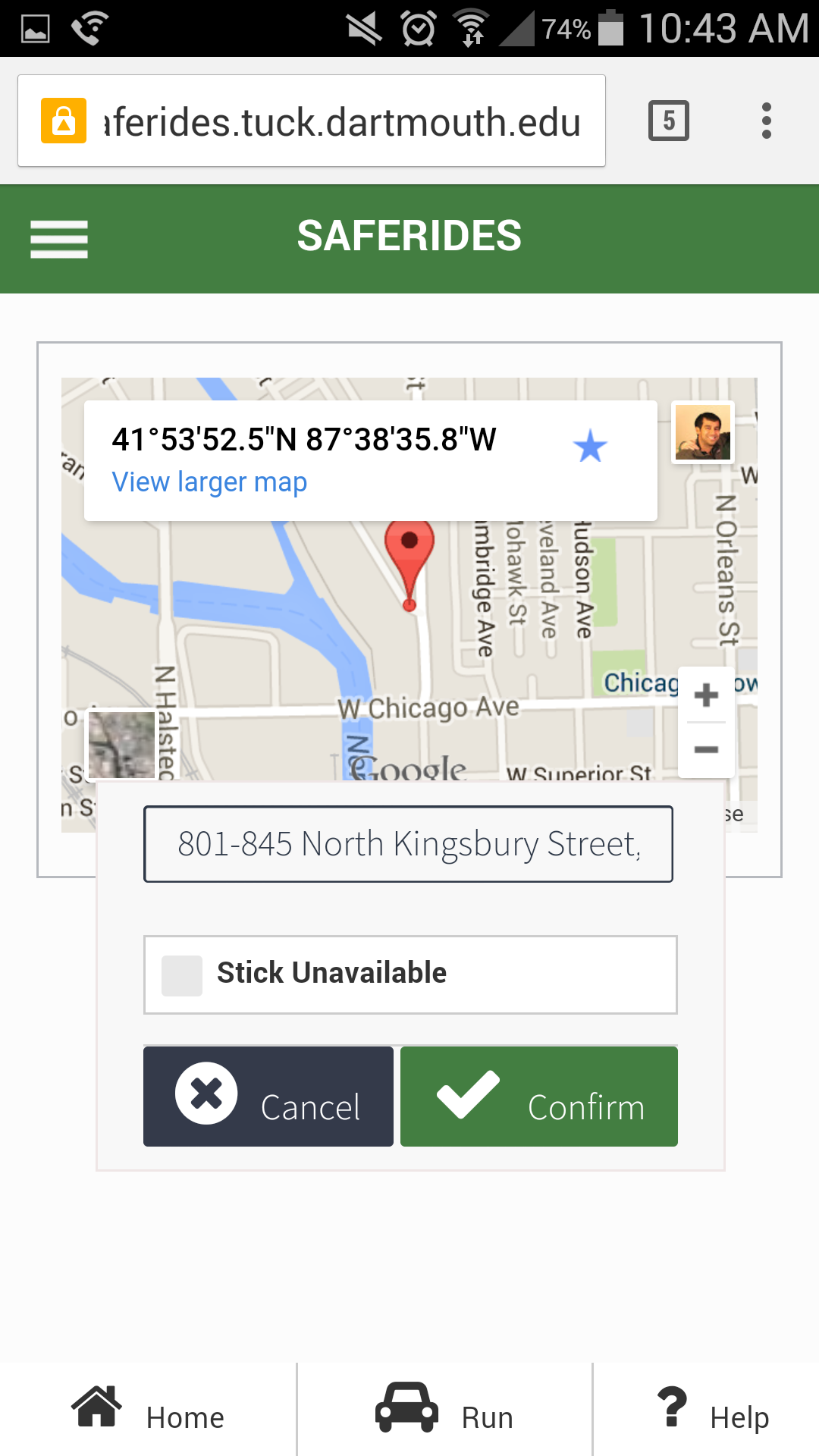 (especially an issue for first-years still learning their way around the Upper Valley). Sometimes they would have a hard time figuring out the phone number to call someone back (with a couple of different “unknown” numbers in their call history). There was an obvious solution that would allow us to address a majority of these issues: a SafeRides app! During the winter term, a fellow student and I worked with Tuck IT to develop an MVP (minimum viable product) for the SafeRides app. Students login using their Tuck login, put in requests (location based on GPS), and view their position on the queue. Drivers “Clock in” during the beginning of their session, view and accept requests through the app, direct the app to map a route using Google Maps, notify the requestor when they arrived at the location, and maintain the single “source of truth” for the queue. The system can send both SMS and email notifications to drivers and riders for different actions based on their preferences specified in the app. The SafeRides app has been a huge step in the right direction. Although this is currently just an MVP, we are working on adding additional features (stick vs. non-stick) and hoping to build a native iOS and Android app next year. The technology space is something that I’ve been interested in during my first year at Tuck. This has been a great opportunity for me to apply some of the skills I’ve learned throughout the year, learn from our second-year student board tech rep/guru SUV, and help our great Tuck IT team (Travis Gere, Joanna Lovett, and Geoff Bronner) build something that will have a positive and lasting impact on the Tuck community. |
| FROM Tuck Admissions Blog: 7 Traits of a Successful Applicant |
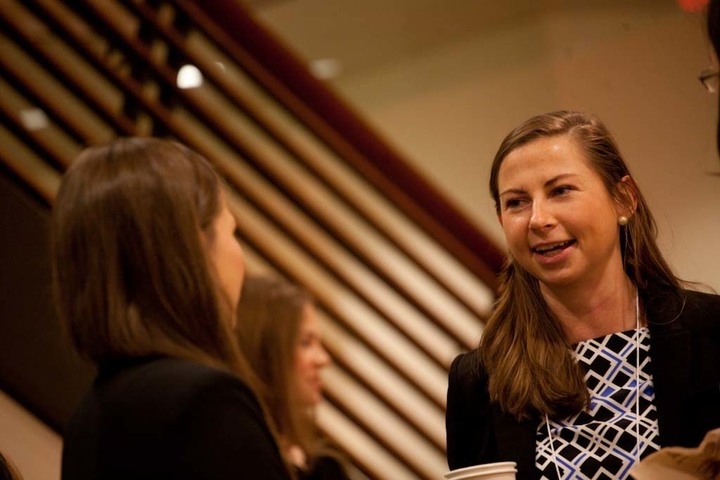 While each candidate has their own unique story and path, there are traits that successful applicants generally have in common. In our experience, the following seven have resonated strongest and most often. 1) They’re prepared. They can clearly and articulately communicate why they want an MBA, how it will help them reach their goals, and why this is the right time to pursue it. Furthermore, they know the school they’re applying to. All elite b-schools have top-notch faculty, rigorous curriculum, and access to jobs with the world’s leading companies and organizations. Successful applicants know what sets the programs they are applying to apart. They are also able to talk about what excites them, how they hope to make an impact while they are at school (and beyond), and they have great questions that delve deeper into the essence of each school. 2) They know themselves. They have a high level of self-awareness and can talk confidently about their strengths and weaknesses, their short-and long-term goals, and the unique talents and experiences they will bring to the classroom and the community. They have taken the time to be introspective, enabling them to know definitively what they’re looking for in an MBA-program, and why. They know the community they’re looking for, and why a particular culture works best with their circumstances and personality. 3) They demonstrate leadership qualities, and are also team members. There’s a time for everything, and a successful applicant recognizes this. They know when to lead and when and how to contribute outside of a leadership role. While the MBA will cultivate leadership abilities and opportunities to practice what you learn, collaboration is equally important. This balance is especially valued at Tuck. 4) They focus on the aspects of their application they can control. There are some aspects of the application process that are completely out of your hands. For example, there’s no controlling the application strength of other candidates applying during that particular application cycle. And once you’ve hit submit, the patience required as you’re waiting for a decision is immense. Instead of dwelling on outside factors, be extra diligent in the areas that you can control such as choosing appropriate recommenders, participating in extracurricular endeavors, taking on leadership roles when possible, etc. When you’re confident you’ve submitted your strongest possible application, you’ll feel much more comfortable with the factors you can’t control. 5) They’re passionate. This is reflected in their goals, their plans to have an impact in the MBA community they choose, and in how they present themselves throughout the application process. Regardless of how untraditional a successful applicant perceives their background or post-MBA plans to be, having the ability to clearly articulate these and why they’re important is far more impressive than telling us what you think we want to hear. It’s hard to fake passion and we can tell when something doesn’t quite fire you up! 6) They’re genuine and enthusiastic. If you’ve already checked off the rest of this list, this one may come naturally to you. Successful applicants present their true self throughout the journey. They realize that everyone they speak to is a part of the admissions process and treat them kindly and with respect. They demonstrate a deep understanding of themselves and which unique traits and strengths are at the core of who they are. The opportunity to get an MBA from a top business school is special, and they treat it as such. 7) They connect the dots. The successful applicant presents themselves in a consistent and clear way throughout all pieces of the application. They pull each individual component into one holistic understanding of themselves and their goals and present a complete narrative that helps the admissions committee have a meaningful understanding of who they are, what goals and aspirations are leading them down the MBA path, and the types of unique contributions they will make to the school they choose. They complete the equation: individual attributes + your goals and aspirations + what your individual contribution will be to the experience (and beyond) = where will Tuck take you? |
| FROM Tuck Admissions Blog: ICYMI: Recap of Live Facebook Chat with CDO Director Jonathan Masland |
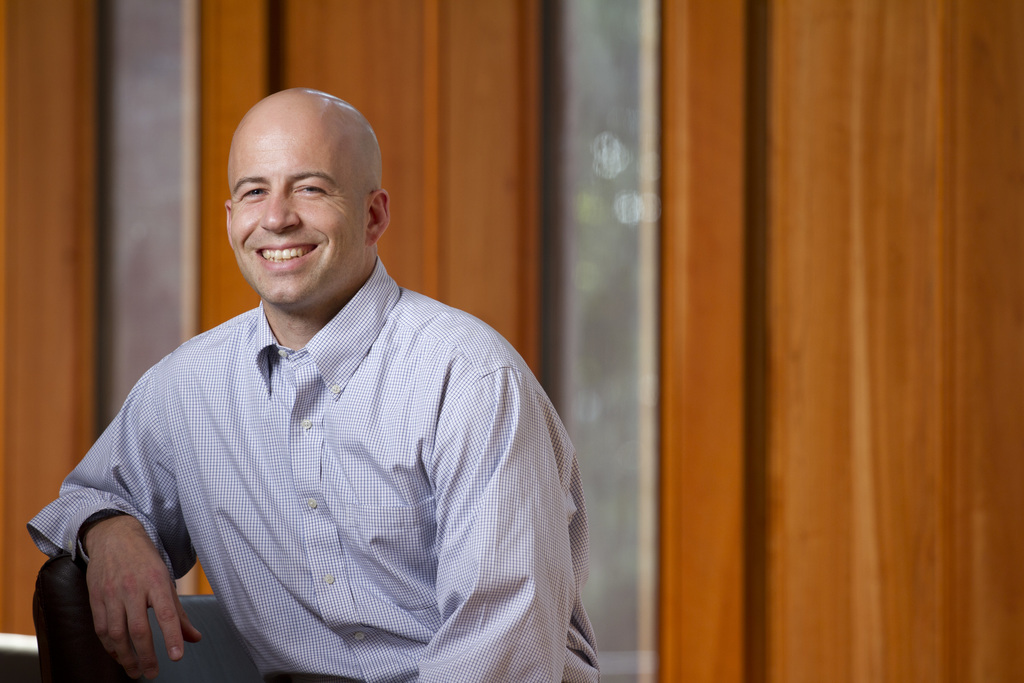 On March 4, Jonathan Masland, director of Tuck's Career Development Office, took over the Tuck Facebook page to answer any and all career-related questions. In case you missed it, here is a full transcript of the chat. Tuck School: CDO Director Jonathan Masland is taking over our Facebook page! Leave your questions in the comment section and he will respond shortly! ***** Cazzie: Hi Jonathan, Thanks for your time today! I am eager to secure an internal strategy role in Supply Chain. I want to focus on sustainability in supply chains, but am open to broader supply chain roles. Specifically I am curious about relationships you may have with companies that operate in Latin America, or if not, your suggestions for launching an off campus recruitment plan. Thanks! Jonathan Masland: Cazzie: a couple of suggestions here for companies—Cargill has a really good program that also involves Latin America; Deere too—Kimberley Clark Falabella too—it is a pretty targeted job search—we would you build the targeted list of companies and Tuck alumni / recruiters to engage in the job search process. P.S. Viva Mexico! Cazzie: Awesome. I'll look into these. I was able to meet with GAP Inc.'s VP for Global Responsibility last week, though their supply chains operate primarily in Asia. Side note, I see you have extensive experience in Latin America too! Thank you! Jonathan Masland: My wife is from Durango, MX Cazzie: My husband is from Hidalgo, Mexico!! ***** Jared: Good afternoon Jonathan. Thanks for your time. I have recently interviewed with an alum and hope to be a Tuckie in the near future. I am interested in consulting and my primary area of interest is healthcare. When pursuing internships and permanent placement is it common for someone to land directly into a niche group of their interest? Or, is it more likely to be placed where there is a need at the firm and then transition to your area of interest once you have proven your mettle? Jonathan Masland: Jared: Healthcare consulting is actually less of a niche than you might think. The Health industry in the US is a focus point for many businesses so definitely expanding. To your question, student are able to land a job in their niche target even for the summer, and those who don't, take a multi-step approach and do something similar for the summer, which gives them a good experience to transition into what they are looking for ultimately. It depends on your background and we do a tailored career search with the student. ***** Gabrielle: What percentage of students reposition after their summer internship and decide to recruit for something different for post-MBA? How does the CDO support that transition? Jonathan Masland: About 50% accept offers from their summer. Many will continue in the same industry as their summer; about 20% or so decide not to go back to the type of job they interned for. This is my best estimate. Jonathan Masland: Gabrielle: I just realized I didn't get to your last question here. We support the transition by offering a whole season of second year on-campus recruiting, sourcing job opportunities, bringing ~150 companies to campus to speak with companies, referring alumni, pushing student resumes to recruiters and alumni, offering one-one-one coaching, and by having a dedicated staff member sourcing jobs for students. I also think that there is a lot of support provided to students making transition organically through interactions with fellow students – Tuck is a close knit community and a lot of learning around careers comes from fellow students. Gabrielle: Thanks so much, Jonathan! Glad (but not surprised!) to see there is the usual outstanding support either way. ***** Justine: What kind of work experience do your career coaches have? Jonathan Masland: The career coaches come to Tuck with a lot of industry experience—here's a quick run through of the team (Lizzie and Mathias are here with me right now!). Deirdre O'Donnell covers finance and worked at Lehman Brothers for 24 years, Stephen Pidgeon, T'07 come from media and worked in consulting at McKinsey; he covers consulting and health care. Mathias Machado, T'09 covers technology and general management; he worked for Siemens, Volkswagen and TomTom; last -- Lizzie Napier, T'91 worked at McKinsey, General Mills, JP Morgan, Welchs and ran an NGO too! It's a great team. ***** Miguel: Hello Jonathan, and thank you for your time! I have been told that some companies in the energy sector in the US are not usually willing to hire international students due to visa issues --and sometimes even due to specific regulations. Since I am not a US citizen and have a keen interest in the energy sector, I would appreciate if you could briefly comment on the challenges faced by international students when recruiting in this industry and how the CDO helps them. Thanks! Jonathan Masland: Miguel—this tends to be for the large Oil and Gas companies—they tend not to sponsor for non-technical roles. Other energy companies seem more willing to sponsor. Also, another strategy I see is for MBAs to work in the energy practice of consulting firms or banks; these will sponsor—and then later transition into industry after a couple years. Often this is in Houston offices. Miguel: Thank you for the answer, Jonathan. What about the renewable energy sector? Have you seen many students heading to companies in this sector lately? David: Apart from the oil industry, are there other industries that are not willing to sponsor international students? Do you know why they do not want to sponsor international students? Miguel: Thank you for the answer, Jonathan. What about the renewable energy sector? Have you seen many students heading to companies in this sector lately? Jonathan Masland: CPG can be a bit of a challenge with some firms and also some rotational programs. Frankly, I'm not sure why the large O&G firms do not sponsor. My thought is that they have plenty of US citizens who apply and can fill the roles. ***** Brian: Hi Jonathan, Does the CDO look at the individual and offer advice as to which career path is best suited to them or is this something that is assumed upon entry and the focus is more on helping a student towards their desired career? Jonathan Masland: We definitely focus on the second option—we will do whatever we can to help the student realize what they want. That said, we will give honest advice and insight into where there may be fits but this tends to be at the request of the student. Brian: Thank you Jonathan Masland: You're welcome! We offer career assessment tools to help students reflect on their priorities, skills and interests and an open door policy where students can work with any/all of our highly experienced career coaches. ***** Chris: Hi Jonathan, Can you describe how the CDO helps students who want to get into Venture Capital? What resources are available and how can the CDO help set someone up for success? Thanks. Jonathan Masland: Chris -- we rely heavily on the Center for Private Equity & Eship at Tuck with T'96 Tom Naughton leading the charge and working one-on-one with students who are interested in VC. We also lean on the PE Center's board and our alumni who work in the field. Here' is a link to the PE Center's website. ***** Nicholas: Before returning to my mentors/managers, from whom I received letters of recommendation for earlier applications, and asking for additional letters, I am wondering if there is a way to set up an interview with the admissions staff to assure that my candidacy would only be solidified with such recommendations. Is this feasible? Jonathan Masland: Hi Nicholas: Are you a re-applicant? Essentially, an application is not considered complete without recommendations. It you are a re-applicant, you only need one recommendation. If not, you will need to provide the required two recommendations. Nicholas: I am not a re-applicant. I had applied to another two schools previously, and went through the process of getting letters. I am, now, considering Tuck, as well. A friend of mine had mentioned that in some instances, one can meet with admissions at Tuck...See More Jonathan Masland: Hi Nicholas: Because the application process is much more holistic than its individual parts, we do not evaluate the viability of a candidate without benefit of a complete application. Removing the ability of an admissions officer to review a candidates application in its entirety before determining whether that candidate is admissible is a disservice to the candidate. If you are looking for a baseline understanding of what a successful applicant looks like, you can refer to our class profile. ***** Arun: Hello Jonathan, Thanks for your valuable time. When does Career Development Sessions start at Tuck? How does CDO help out students in reaching out to companies of their choice? Jonathan Masland: No problem! Where are you? Arun: I am in India. Jonathan Masland: It's a little warmer in India I think though today it is a balmy 40 degrees. CDO starts sharing information at ASW -- most summer materials are digital with some call in events to review industry careers; early August we have a Technology immersion in the Bay in the first week of August. For reaching out to companies -- three things; we coach students on how to reach out; we connect them with our alumni and then also we have a dedicated staff member that all she does is reach out to companies to source jobs on behalf of the CDO and then also specific student requests. Arun: Yeah. It was raining in Mumbai for last couple of days. How is climate in Hanover? That was very informative detail. I understand Tuck is one of the best in General Management Consulting, but If I am looking for something specific. Let’s say Infrastructure Consulting. How does it work out with CDO? You did mention it in last point, but I would really appreciate if you could come up with some more details on it. Jonathan Masland: With respect to something so targeted, students typically rely on three key resources in the CDO/Tuck – (1) our alumni that support student jobs searches; we open up our alumni database to students to use, (2) our dedicated professional, Sarah Van Orman, who will meet with students and then reach out to targeted companies and (3) coaching from the CDO team of coaches that provide guidance and support to the student as he/she works through the process of sourcing, networking applying, interviewing and ultimately landing a targeted job. Arun: Thanks Jonathan for getting back to me. It is nice to hear about strong alumni support of Tuck. ***** David: Hello Jonathan! First of all, I would like to thank you for your time and attention today. I have three questions for you:
Thank you! Jonathan Masland: Hi David, We don't really see a gap between US vs. international salaries. $118,160 vs. $1116,050 mean salaries (the medians are reversed). You can see all the stats in our Employment report. Repayment of loans really depend on personal preference, your specific salary, and so many other factors. Regarding apparel/fashion industry, we have alums in H&M, Nordstrom, Target, UnderArmour, Nike as a couple of examples and relationships to firms like Simon Kucher who do consulting in this space. ***** Oscar: John. It's nice to see you again. I remember meeting you on 1/30/15 at Tuck, when you directed me to Tuck's Lunch with a student. I have many questions. My first involves the use of CDO resources before matriculating. Does Tuck allow matriculated students to access CDO resources before they start school? Thank you! Jonathan Masland: Oscar! Good to see you again, if only online. You can see the post I just put up. We will push content to you throughout the summer by email and the admitted student website. ***** Gabrielle: What type of support is provided to incoming first years between now and August? Jonathan Masland: We are offering some online content related to career exploration called CareerLeader, information on resume preparation and also we are building out a library of what it is like to work in different industries by interviewing alumni -- these will be digital and shared with admits for industries like consulting, banking, energy, CPG, etc. We'll be posting summer camp career opportunities. One more thing -- we will be doing another Silicon Valley Bootcamp on technology -- Mathias Machado T'09 is here with me (he's from Argentina) and might provide a little more content on this three day event in the Bay. The date is not set yet, but we are targeting that first week of August (5,6,7). You can find out more about what we did last year. Oscar: Cool. Gabrielle looks like we asked the same question. Gabrielle: I know! We should work on our resumes together before school starts Jonathan Masland: Great minds... We'll send over resume guides and content to help you guys. And admitted students can reach out to the CDO anytime! ***** Oscar: Besides doing well in class, attending recruiter presentations, what is the most valuable actions 1st years can take to help their career profile? Jonathan Masland: Oscar—getting to know the company professionals and Tuck alum and them getting to know you, your profile and your interest in the industry/company is really important. This really references 'networking' -- we do a lot to both train students to network and also facilitate by offering many events at Tuck and in different cities through treks. The other thing that can help a lot is to become clear on what you really want to do for the summer and after you graduation -- this clarity will help you direct your energy focused on the opportunities. I hope this helps. Oscar: Definitely helps. I'm currently working on getting that clarity right now. This is actually a perfect lead in to my next question. I have posted it in a different comment. ***** Oscar: How should pre-MBAs go about formulating a backup plan in case their first industry does not work out as they planned? Jonathan Masland: It's a good question regarding a backup plan -- I think it is important to have one in mind as you explore option one but initially I'd focus 100% on plan A for the summer and post-MBA. It also depends to some degree on how difficult the job is to land relative to your pre-MBA background. This is the kind of question that I and the four CDO coaches would spend time speaking to you one-on-one about and helping you create the best possible plan. Oscar: Great answer! Thank you so much for your time. I know I may sound like an admitted student, but i'm still waiting for good news on March 13th! ***** David: Last question: What are the big challenges that an MBA has to land his dream job? Jonathan Masland: It’s a tough question without knowing more about a person's background—in general, clarity in what is one's dream job, a willingness to dedicate yourself to building the experience required to land this job and lastly, having fun and engaging the people that will help you in the job search—alumni, students, recruiters and of course the people that interview you. I hope this helps—it's a good question to ask during one-on-one meetings. David: Muchas gracias! ***** |
| FROM Tuck Admissions Blog: From Hanover to Hollywood: Musings on Life, Learning, and Love |
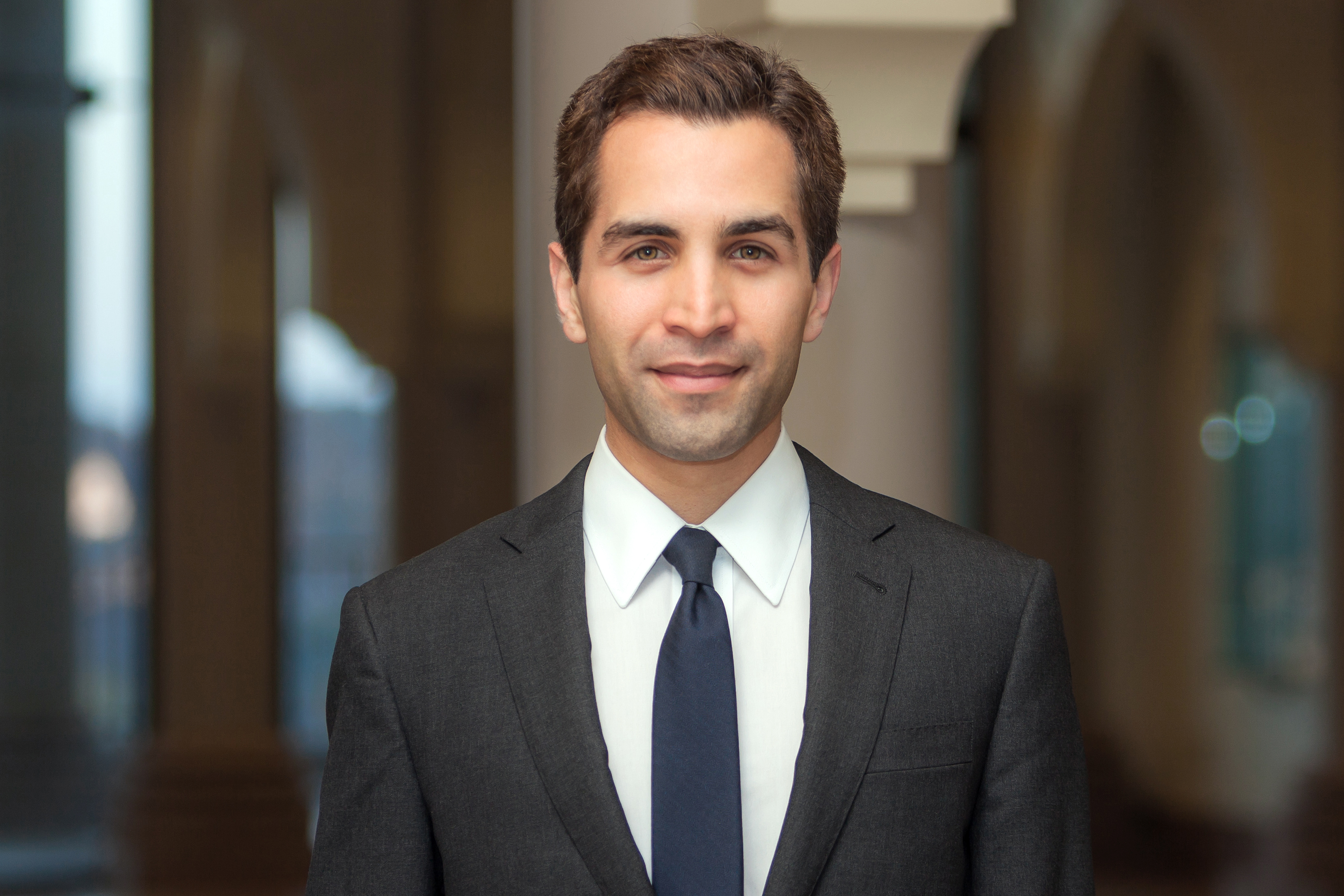 By Josh Hamilton T’15 I moved to Hanover filled with a little bit of nervousness, a dose of confidence, and a great deal of hope. Nervousness? I admit it—I felt it. Deciding to leave my home and friends to pursue a full-time MBA at Tuck was a deeply personal decision for me; that single inflection point is one that I believe will continue to define my part in this comedy called life. Perhaps, as you read these words, you are pondering your own MBA trepidations. Should I go? Where should I go? Is it the right investment for me? How will I finance my degree? Questions such as these demand careful consideration. What I can share is that, for me, I knew I wanted to make a change and move into media and entertainment. And how did I realize this, you ask? I suppose the answer was always there in front of me, but it took time to realize it. After growing up acting, finding a student board of directors at the playhouse that developed and launched Jersey Boys, and spending years of your adult life watching hundreds of black & white films, you  would think that you would know your calling in life, or at the very least, you would know the place to start looking. So look I did—finally! While at Tuck, I was fortunate to receive a couple of internship offers from two prominent companies in the industry; I chose Paramount Pictures. So, I packed my bags, flew to Los Angeles, and spent three extraordinary months working on the studio lot in Hollywood. On the first day of the program, all the interns met at Sound Stage 29 (where Dr. Phil is filmed). After being greeted and formally welcomed by the COO and other members of the team, they played, what they call in the industry, a “sizzle reel”—basically an incredible few minutes of hair-standing-up-on-your-arm moments—which previewed some of the upcoming titles in Paramount’s slate. The final film on the reel was none other than Christopher Nolan’s, at the time, highly secretive Interstellar. I still remember the distinct tingling feeling I had after seeing it—yep, I was definitely in the right place. What ensued over the course of those three months is something I can only describe as feeling as though I was doing what I actually wanted to do, and Tuck helped me make that moment in my life happen. I’ll always remember that. Now I’d like to address why Tuck was the right decision for me. Here’s where love comes into the story, and to be specific, I mean the type of love described by the Greek word philia. Aristotle described philia as friendships of the good, friendships that endure. The many friendships that I have made I believe will endure well beyond my time at 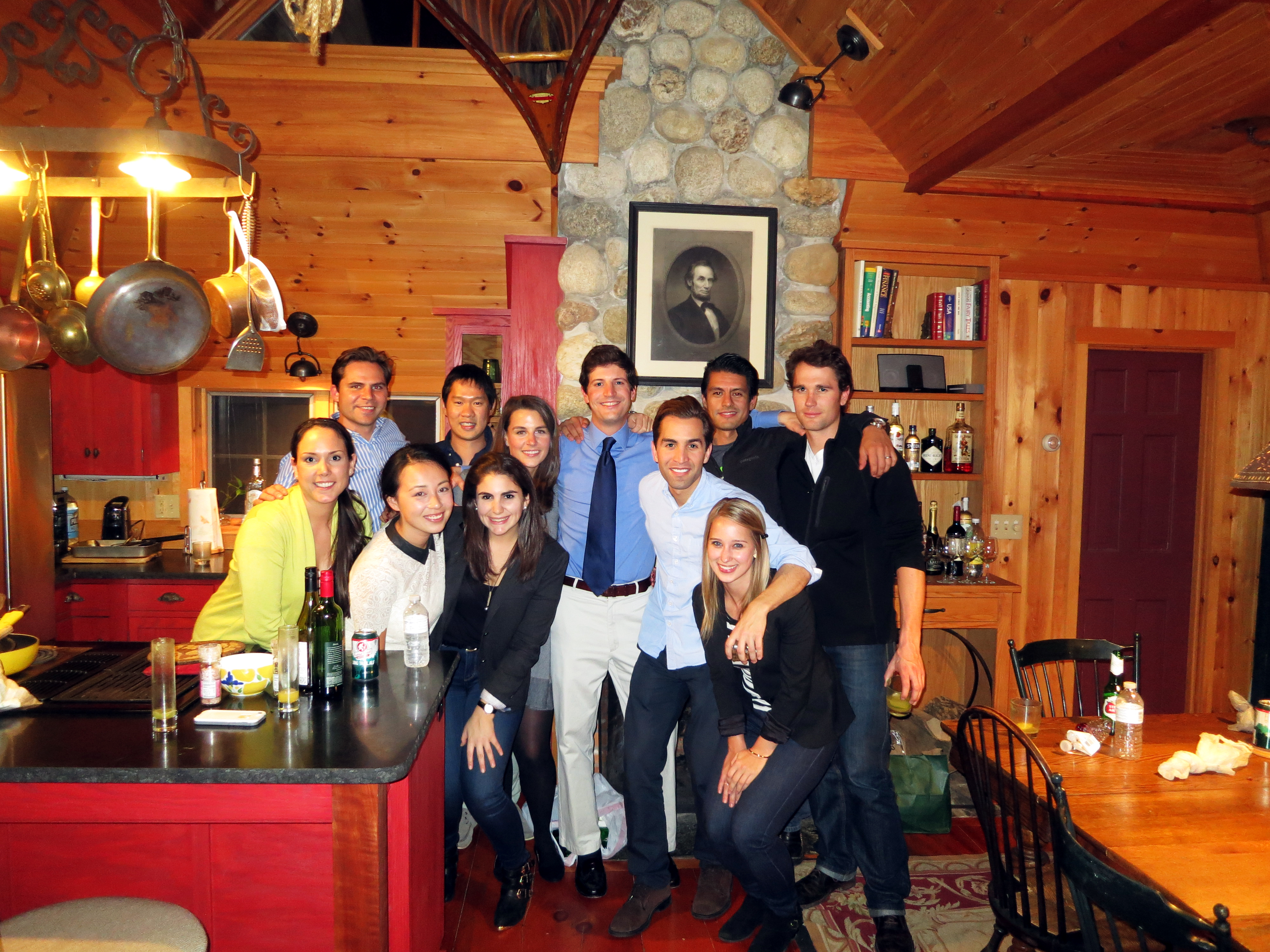 Tuck. What is truly amazing is the diversity and breadth of those friendships. These are people who are both quite similar and strikingly different from me, and who taught me, for example, how to play ice hockey (great memories of triumph and humility), how to perform traditional Indian dance to celebrate Diwali, how to make the best Paella that I’ve ever tasted (thanks Camilo!), and how to construct my very own kilt and dance traditional Scottish dance to celebrate the inimitable Robert Burns on Burn’s Night. I imagine it’s difficult to fully understand what I’m sharing here until you have experienced it, but suffice it to say that at Tuck, you will have the honest pleasure to form many enduring friendships with people who truly care about you and your future success. It’s a part of the DNA at Tuck—it’s why we happily leave the city to live in Hanover for two years and why we yearn to go back as often as possible when we have to finally leave this extraordinary place. So … I’ll leave you with a few summary points to consider:
|
| FROM Tuck Admissions Blog: Your Reapplicant Strategy |
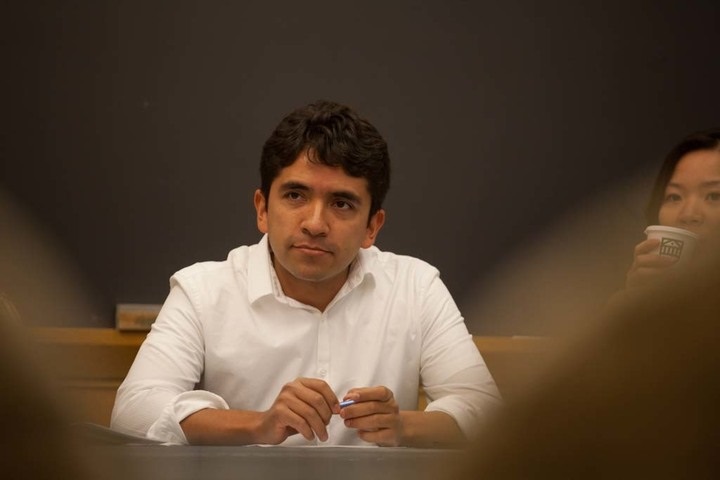 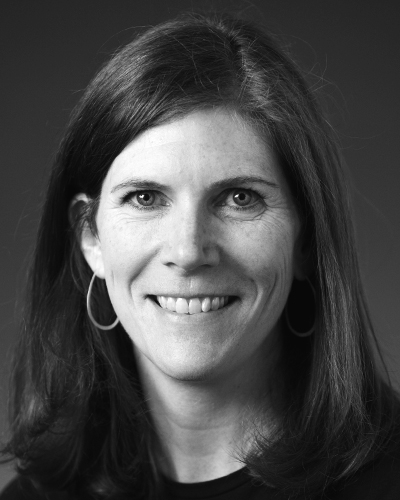 By Pat Harrison Pat Harrison is Senior Associate Director of Admissions, Recruiting and Enrollment at the Tuck School of Business at Dartmouth. She oversees Tuck’s reading and interviewing process and focuses on the recruitment of women. She has been with Tuck since 2003. I have been getting lots of questions from unsuccessful applicants who are planning to reapply to Tuck this coming fall. Many want to know what we think of reapplicants, what they can do to improve their chances the next time, and what the process is. First, what do we think of reapplicants? We are happy to see them! The fact that you are committed enough to Tuck to try again shows us you sincerely want to be here – and we like people who really want to be here! That said, we want to see reapplicants who have taken steps to strengthen their candidacy, not someone who simply resubmits the previous application. Spend some time evaluating what areas might have held you back the first time and work hard to improve them. Some common areas that come to mind are: GMAT score; limited quantitative skills; limited work experience; unclear goals or reasons for wanting to come to Tuck; failure to differentiate yourself from others. On the GMAT, while there is no magic number required for admission, and we admit people with a wide range of scores, if you find your score is significantly below our average, you might want to consider giving it another try. If you are at our average, but know you can probably do better, a higher score does help differentiate your application. If you are someone who has had very limited exposure to quantitative skills in your undergraduate education or work and/or a low quant score on the GMAT, you might want to consider taking some classes to show us that you can handle the work. Suggested classes would be financial accounting, statistics and microeconomics. In terms of work experience, again there is no magic number as to how many years you must have, but if you are only a year or two out of school, you might want to think about waiting a little longer to reapply until you get some more experience under your belt. Additionally, if you are on the briefer side of experience (and actually this goes for anyone applying) you will really want to highlight the quality of the experience you have had. So even if it is brief, show us how much you have accomplished. Unclear goals and/or reasons for wanting to come to Tuck is something we see from a lot of applicants. While we don’t need your life plan down to the most specific detail, having a good sense of where you are heading is important. I find the best answers to this question tell us what you want to do short-term and long-term (and short-term should not be “getting an MBA,” we want to know what you want to do post-MBA) and why you want to do that. What in your past experiences has led you to this conclusion? Next tell us why an MBA is going to help you reach those goals, and try to be more specific than just “getting business skills.” Finally, tell us why an MBA from Tuck, as opposed to other schools, will help you reach those goals. Talk about unique programs we offer that are related to your area of interest or how the community will support your plans. Finally, differentiating yourself from the rest of the applicant pool: this can be hard sometimes, but focus on being yourself. Let your personality come through. You are more than just your job or where you went to school. Tell us who you really are and what you are passionate about, rather than telling us what you think we want to hear. Tell us what makes you unique and how your experiences will contribute to the community and the learning of your classmates. Procedurally, applying as a reapplicant is just the same as the first time you applied. You must complete the entire application including all of the essays. Additionally, you must complete a reapplicant essay explaining how you have strengthened your application, so going through the analysis I outlined above will be helpful. Even though the essay prompts are comparable to those from previous years, I strongly encourage you to rewrite all of them. Some of the topics you choose may stay very similar, but approaching them with a fresh voice is likely to make them stronger. We will have your prior application when we review your new one, and we will refer back to you prior essays. However, we will not review it as carefully as your new application, so make sure that anything important is included in your new application. If you are able, I encourage you to come to campus for an interview, even if you already interviewed before. It provides another opportunity to share your story and explain what you have done in the past year to improve your application. However, if you are not able to visit again, we will have your prior interview evaluation on file. We may, or may not, invite you to re-interview depending on if we feel we need additional information from you. I hope that gives you some ideas for your new application. Good luck. We look forward to hearing from you again, and remember; some of our favorite students at Tuck were ones who got in on the second try (and a few on the third!) |
How To infographic.png [ 182.59 KiB | Viewed 4955 times ]
| FROM Tuck Admissions Blog: Q&A with Sudershan “Suds” Tirumala T’10 |
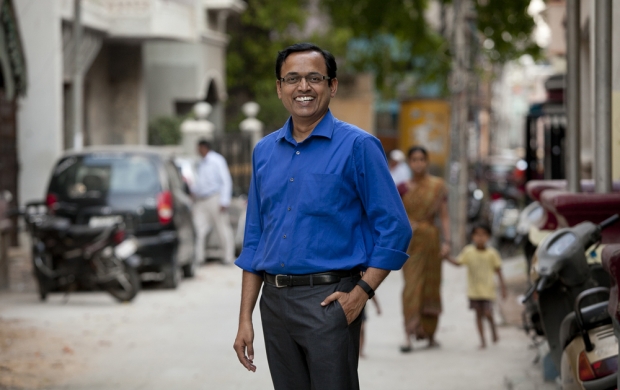 MBA Crystal Ball recently sat down with Sudershan “Suds” Tirumala T’10, Tuck's regional director for India and South East Asia, to discuss Tuck's admissions process. Suds addressed:
Read the full interview here. |

|
|
||
|
Hi Generic [Bot],
Here are updates for you:
ANNOUNCEMENTS
Watch earlier episodes of DI series below EP1: 6 Hardest Two-Part Analysis Questions EP2: 5 Hardest Graphical Interpretation Questions
Tuck at Dartmouth
|